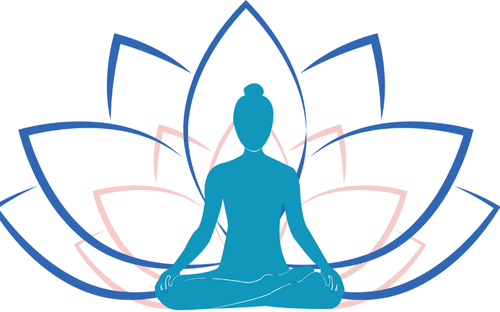The Transformative Power of Gratitude in Mental Health

Understanding Gratitude and Its Importance
Power of Gratitude is an intricate emotional experience that transcends the mere act of saying ‘thank you.’ At its core, gratitude involves recognizing the positive aspects of our lives and acknowledging the role others play in contributing to our well-being. It encompasses a profound appreciation for both tangible and intangible aspects, ranging from personal relationships to the beauty of nature. Research has shown that cultivating gratitude leads to enhanced mental health outcomes, making it a vital component for individuals seeking to improve their overall well-being.
The significance of gratitude in mental health can be understood through various studies that focus on its benefits. Engaging in regular gratitude practices has been associated with mood enhancement, reduced symptoms of anxiety and depression, and increased life satisfaction. These studies highlight that individuals who actively cultivate gratitude often report higher levels of happiness and improved emotional resilience. This positive shift in mindset can act as a buffer against stress and negative emotions, reinforcing the connection between gratitude and mental health.
Additionally, gratitude is not only beneficial for emotional well-being but also linked to physical health, creating a positive feedback loop that further enhances mental health. Research indicates that grateful individuals are more likely to engage in healthy activities, such as regular exercise and improved sleeping patterns. These behaviors contribute to better physical health, which in turn positively affects mental health. Moreover, people who practice gratitude often experience lower blood pressure, improved immune function, and reduced feelings of loneliness.
In essence, understanding gratitude as a multifaceted experience allows us to appreciate its importance in the realm of mental health. By acknowledging and practicing gratitude, individuals can unlock a pathway toward improved emotional well-being and overall quality of life.
The Science Behind Gratitude and Mental Health
Gratitude, often understood as a positive emotional response towards receiving kindness, has garnered significant attention in scientific research for its profound implications on mental health. Numerous studies illustrate that expressing gratitude can lead to substantial emotional and psychological benefits, ultimately enhancing one’s overall well-being. For instance, a study published in the journal “Psychological Science” revealed that individuals who regularly practiced gratitude reported higher levels of happiness and lower levels of depression. These findings suggest that gratitude is not merely a transient feeling but a transformative mindset that can significantly improve mental health.
Neuroscientific research further underscores this connection. Functional Magnetic Resonance Imaging (fMRI) studies have shown that engaging in gratitude exercises activates specific areas in the brain associated with empathy, reward response, and emotional regulation. Specifically, brain regions like the prefrontal cortex, which is responsible for executive functions, and the anterior cingulate cortex, which plays a role in emotional processing, show increased activity when individuals reflect on what they appreciate. This neurobiological evidence implies that gratitude can lead to lasting changes in brain functioning, fostering resilience against stress and emotional pain.
Additionally, gratitude has been linked to reduced levels of the stress hormone cortisol, leading to lower overall stress perceptions. A meta-analysis reviewing multiple studies found that gratitude interventions could reduce anxiety and promote psychological well-being as evidenced by self-reported measures of life satisfaction. Participants engaging in gratitude journaling or expressing thanks to others demonstrated a significant increase in positive affect and overall life satisfaction compared to control groups.
This body of research positions gratitude not only as an emotional practice but also as a scientifically validated strategy for enhancing mental health outcomes. By cultivating a gratitude practice, individuals can harness its power to foster emotional resilience and elevate their state of well-being.
Practical Tips for Incorporating Gratitude Into Your Daily Life
Integrating gratitude into daily routines can significantly enhance one’s mental health and overall well-being. Here are some actionable strategies that individuals can adopt to cultivate a mindset of appreciation.
One effective approach is to maintain a gratitude journal. Setting aside a few minutes each day to write down three to five things you are grateful for can help shift focus from negative experiences to positive ones. This practice not only encourages reflection on life’s small joys but also serves as a powerful reminder of the aspects that contribute to personal happiness.
Additionally, setting reminders throughout the day can prompt individuals to pause and reflect on positive experiences. These reminders can take the form of alerts on smartphones, sticky notes placed around the home, or scheduled tea breaks dedicated to reflection. Such intentional moments serve to cultivate awareness and appreciation for the present, even amidst life’s challenges.
Sharing gratitude with others can further enhance this practice. Expressing appreciation to friends, family, or colleagues fosters deeper connections and strengthens relationships. A simple thank-you note, a quick message, or a heartfelt conversation can go a long way, making both the giver and the receiver feel valued.
Mindfulness is another effective technique for incorporating gratitude. Practicing mindfulness meditation allows individuals to focus on the present moment, enabling them to recognize and appreciate the good in their lives. Apps such as Headspace or Calm can provide guided sessions specifically geared toward cultivating gratitude through mindfulness.
In addition to journaling and mindfulness practices, utilizing modern technology can facilitate gratitude exercises. Several applications, like Grateful or My Gratitude Journal, are designed to help users document their moments of appreciation with ease. By leveraging these tools, individuals can seamlessly integrate gratitude into their everyday lives, promoting a healthier mental state.
Building Resilience Through the Practice of Gratitude
Gratitude has emerged as an essential tool for fostering resilience in the face of life’s challenges. By cultivating a mindset centered on appreciation, individuals can enhance their emotional strength and improve their ability to cope with adversity. This practice not only allows for better management of stress but also promotes a more positive outlook during times of difficulty.
According to clinical psychologists, the conscious acknowledgment of gratitude can significantly alter one’s perspective on stressful situations. When facing setbacks, individuals who engage in regular gratitude exercises tend to reframe their experiences, viewing challenges as opportunities for growth rather than insurmountable obstacles. This shift in perception is pivotal in building resilience, as it encourages a proactive approach to problem-solving and emotional regulation.
Experts suggest that incorporating gratitude into daily routines can be as simple as keeping a gratitude journal or regularly expressing thanks to others. By reflecting on what one is grateful for, individuals can cultivate a sense of emotional well-being that strengthens their capacity to endure tough times. The act of recognizing and appreciating the positive aspects of life—no matter how small—can serve as a buffer against anxiety and depression.
Personal testimonials highlight the remarkable transformations that can occur when gratitude is embraced as a regular practice. One individual shared how maintaining a gratitude journal helped him navigate the emotional turmoil following a job loss. By focusing on the lessons learned and the support received from loved ones, he was able to regain a sense of purpose and resilience. Such stories illuminate the profound impact that gratitude can have on building emotional fortitude, proving that even in the most challenging circumstances, a thankful mindset can empower individuals to thrive.





